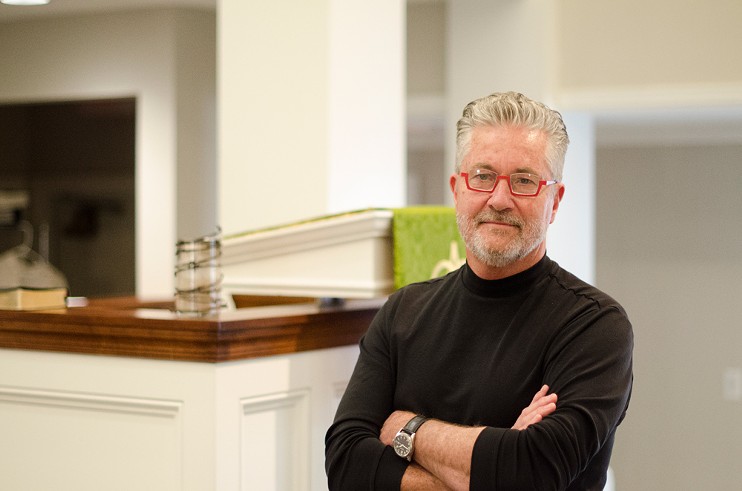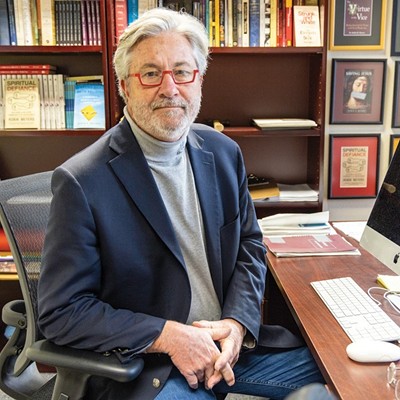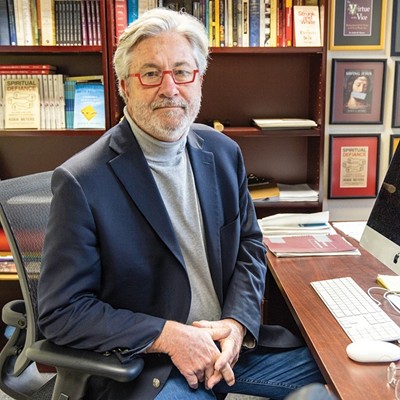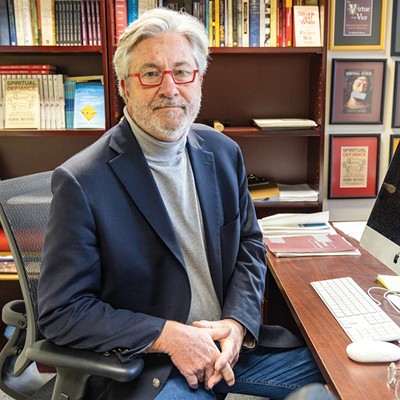America is an endangered country. Our democracy is on the verge of collapsing, our freedoms are being revoked by people who believe in rights but not responsibilities. Our sacred belief that tomorrow can be better than today is fading in a haze of despair and mental illness that we lament but do not treat. The specter of future violence is real, while virtue and humility seem like quaint ideas from another age. Now we do whatever it takes to “win,” despite the collateral damage we leave in the wake of our pathological narcissism.
Historians are likely to record the ascendency of Donald Trump as the straw that broke e pluribus unum’s back—not because he was unique in his use of fear to divide us, but because he so gleefully uncorked the long-simmering hatred of those who struggle and feel abandoned by coastal elites, “woke” corporations, and most of all, “radical socialist” Democrats who are out to replace them, take their guns, destroy their way of life and force them to raise their girls as boys and their boys as girls.
Although zero-sum politics and mean politicians are hardly new, something much more sinister is happening now that undermines even our best efforts to make the world a better place: We are lying all the time. We live in parallel and opposing universes when it comes to the truth, and no amount of evidence-based reasoning and critical thinking can shame us out of saying or doing whatever protects the power of our tribe. When Clinton lied about his affair with Monica Lewinski, he was lying for the two most common reasons: to get something we want and to avoid punishment. His impeachment by the House was the price he paid for lying—something which was itself once considered shameful.
When Trump raised lying to a shameless pathology, something even more frightening happened that transcends whether you love him or hate him. Lying became the standard in politics (as it so often is among celebrities, the super-rich, and those insulated by privilege), rather than a dangerous exception. Since everyone lies, we argue, only the foolish or naïve tell the truth. Nice guys finish last.
What we often ignore at our peril, however, is what lying does to human beings, and to society. For years I have taught a course at Oklahoma City University in the ethics of communication. Scholars have discovered that the fable, “The Boy Who Cried Wolf” may be the most common didactic story in the world. We all know the plot. A lad tending sheep thought it would be fun to cry, “The wolf is here!” and see the villagers come running to help even though there was no wolf. He did it again and again, but each time it was a lie. Finally, the wolf did come, and he cried wolf, but nobody came—and that was the end of both the sheep and the shepherd.
This tale is probably older than Aesop’s fables, and if you ask a child what it means, she will say, “It is not good to lie.” But it goes much deeper than that. Repeated lying undermines and finally destroys a person’s credibility. Lying makes that person, quite literally, unbelievable. I ask my students, “What is the first casualty of lying?” They answer immediately and almost in unison: “Trust.”
The Greeks believed that a person who could not be believed because he could not be trusted had disappeared. His life was worthless because nobody could take him at his word, even if he was telling the truth. Compulsive lying is therefore not simply a matter of concern or frustration—It is a matter of life and death. When the Harvard philosopher Sissela Bok wrote the classic book on lying, Lying: Moral Choice in Public and Private Life, she expanded on the idea that lying was morally wrong and often the source of great pain. But she also reminded us that our focus has always been on the liar but seldom on the lied to. They have their very autonomy stolen because they act on the world based on false information. Lying keeps the lied to in the dark, and they make decisions based on the absence of light.
Since lying destroys trust and robs us of personal autonomy, the price we are paying now cannot be overstated. My follow-up question is, “What does trust make possible?” “Everything,” my students answer just as quickly. Marriage, human relationships, shared beliefs — you name it — trust makes it possible, and lack of trust destroys it.
Our national crisis is rooted in our loss of trust—in other people, in institutions, even in the possibility that the truth exists at all. Listening to the evening news reveals that many of us have descended into a kind of nihilistic post-truth postmodernism. There is no Truth with a capital “T,” just my truth and your truth. If you disagree with me, you must be lying, and the evidence you present for what you believe must also be a lie. So, if there is nothing we can agree on because we don’t accept the idea of objective evidence to begin with and if we cannot change our beliefs based on evidence that proves we might be wrong, then how can we move forward to build any kind of free, open, and democratic society?
That’s why it is no exaggeration to call the belief that the 2020 election was stolen from Trump “the big lie.” It has created a permanent class of people who don’t care what the evidence proves. That lie, from which we may never recover, sustains millions in the conspiratorial world that also gives their lives meaning. It reminds me of the words of Jesus of Nazareth, as fresh as the morning newspaper: “You shall know the truth and the truth shall make you free.”
Visit robinmeyers.com












